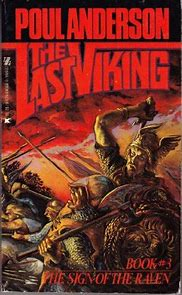" 'Now I take you here to witness, that the king has given me the kingdom and all power in England.' " (p. 142)
This sounds like dishonesty on Harold's part. However, at the Witan, all the chiefs name Harold, the people shout their assent and no one speaks for either Duke William or Harald Hardrada. That should have ended the matter. Instead, two battles were fought and the will of the Witan was overturned.
Rome backs William and Harold aims to get the English bishops on his side. Again, the Church looks like a political instrument, not like an independent agent with any superior moral authority.

2 comments:
Hi, Paul!
I remember that part of the book. Frankly, I've wondered if King Edward actually named the dynastic heir, Edgar the Atheling, as his preferred successo and Harald Godwinson simply lied. And the other chieftains and Witan, whatever they might have personally wished, assented to a grab of the crown by Harold. Because this was no time for a child king who could not possibly fend off the warlike Harald of Norway and Duke William.
And I don't remember from the book the Church backing William of Normandy (whom I consider to have had only a weak claim to the throne) over Harold II. Rather, I recall Harold thinking he would have to send ambassadors to Rome to argue against Duke William's own envoys. Anyway, battles at Stamford Bridge and Hastings was to settle the issue before any diplomatic maneuverings had any effect.
Sean
I think it's accurate that Rome backed William. This is quoted in ALICE IN WONDERLAND:
"William the Conqueror, whose cause was favoured by the Pope, was soon submitted to by the English who wanted leaders and had been of late much accustomed to usurpation and conquest. Edwin and Morcar, the Earls of Mercia and Northumberland, declared for him and even Stigand the patriotic Archbishop of Canterbury found it advisable to go with Edgar Atheling to meet William and offer him the crown. William's conduct at first was moderate but the insolence of the Normans..."
Post a Comment